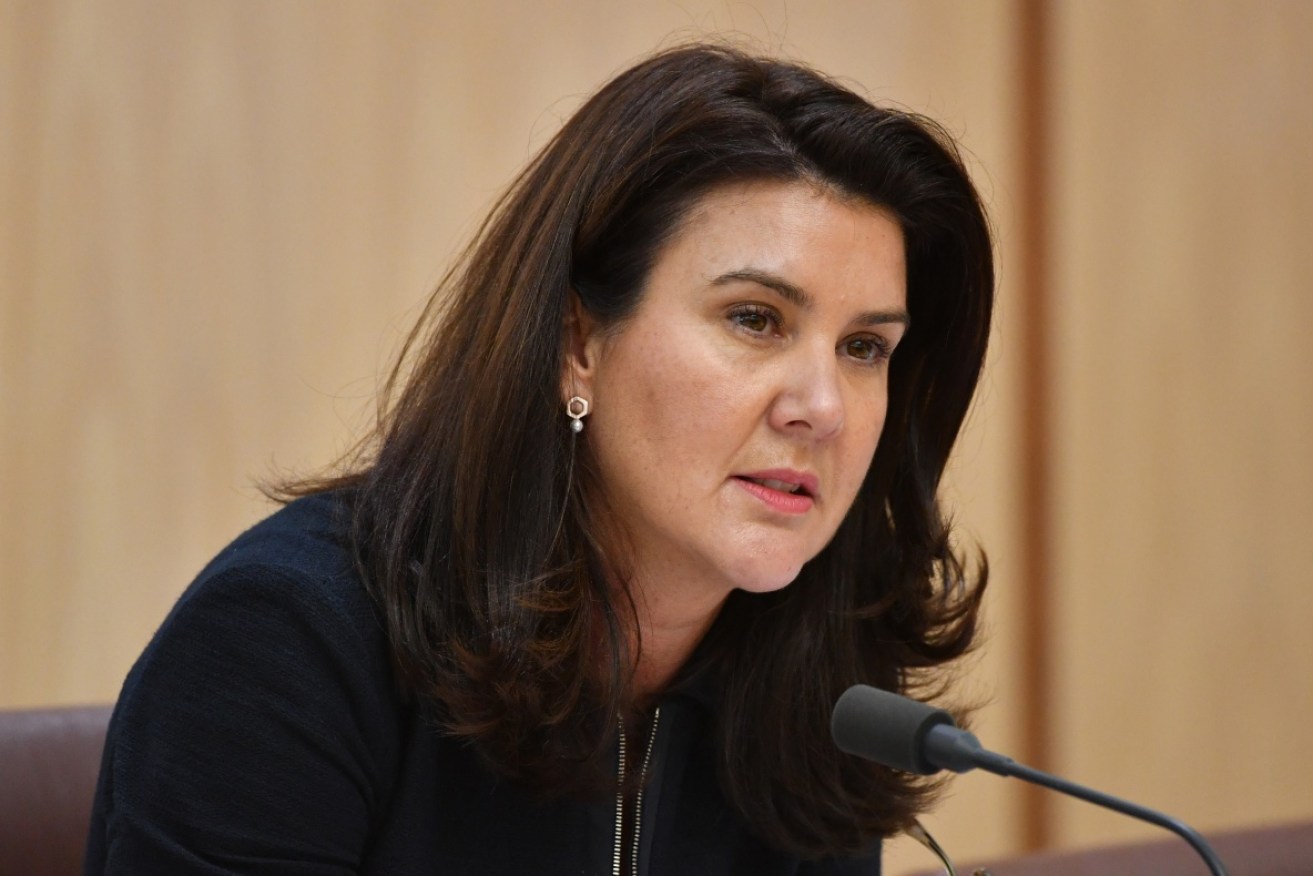Superannuation minister defends ‘kill switch’ plan, despite mounting opposition


Shadow finance minister Jane Hume is unimpressed by proposed changes to superannuation legislation. Photo: AAP
The minister responsible for superannuation has defended a controversial proposal to allow the Treasurer to overrule spending and investment decisions by industry funds.
The federal government is trying to push through major changes to Australia’s superannuation system.
The most divisive is empowering the Treasurer to determine how super funds spend their members’ money.
Industry figures have described the power as an investment “kill switch” and independent senator Jacqui Lambie has called it total overreach. Queensland MP Bob Katter has also come out in opposition to the plans.
Superannuation Minister Jane Hume said the veto powers were aimed at enforcing spending standards in so-called “grey areas”.
“Let’s say there is an industry junket for board members to travel overseas or sponsoring little leagues,” she said on Wednesday.
“How is that a clear benefit to members?”
Senator Hume claimed the powers would only ever be used as a measure of last resort, and denied the changes would allow the Treasurer to impose their beliefs and values on super funds.
She said the powers would be enacted through regulation – not legislation – giving parliament more power to overturn them.
“It’s not a measure that allows the responsible minister to just wake up one morning with an agenda and strike out specific kinds of investment,” Senator Hume said.
“It’s a lever that will allow government to clarify trustees’ duties to invest and spend their members’ money.”
The superannuation reforms also centre on a proposed practice known as stapling, which would allow employees to take their funds with them from job to job.
This is designed to empower consumers, increase transparency and hold underperforming funds to account.
But the proposal has also faced widespread opposition.
Senator Hume would not say whether she would pull the entire superannuation bill or just the unpopular elements if the changes were opposed.
“We will continue talking to the cross bench about their concerns and hopefully clarify some of those concerns,” she said.
“But we do that with all bills, we don’t do it through the media.”
Other crossbench MPs, including maverick former Liberal Craig Kelly, Zali Steggall and Helen Haines are also likely to oppose the bill.
As the Coalition has just 75 votes in the 151-seat lower house – following Mr Kelly’s decision to leave the Liberal Party – that leaves it facing an uphill battle to get its legislation through.
-with AAP







